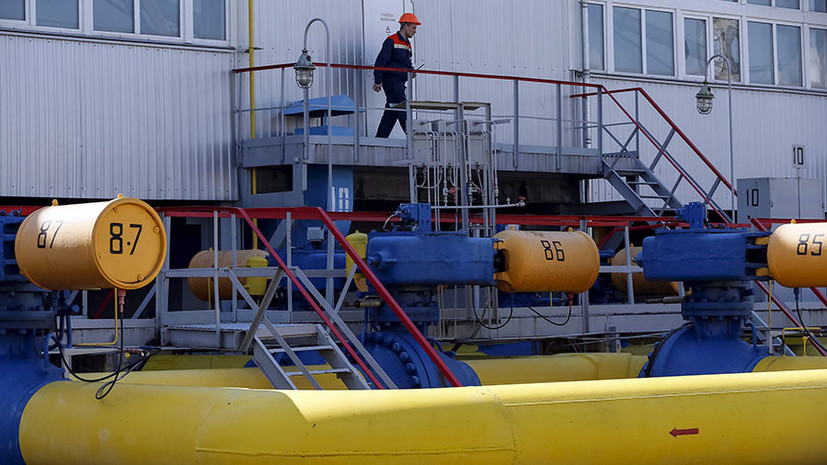Russian gas began to flow through Ukraine as part of a new agreement on fuel transit between Moscow and Kiev. This was stated by the operator of the gas transmission system of Ukraine.
“We have already transported the first cubic meters of gas to the EU under a new transit contract, henceforth - according to European rules at interstate points,” says the page of GTS Ukraine Operator LLC on Facebook. It is noted that the system is operating normally.
As the head of the company Sergey Makogon specified, the first night of the work of the new operator of the Ukrainian gas transportation system was held normally.
“We worked out all the nominations for transit as part of the implementation of the new agreement. We have proved that we are able to work according to the new European rules, ”he wrote on Facebook.
In addition, on January 1, Makogon signed an act of acceptance and transfer of assets from the state-owned Ukrtransgaz JSC, which is necessary to complete the legal procedure for separating the GTS operator into a separate structure.
European rules prescribe the separation of the operator of the gas transportation system of Ukraine from the state-owned company Naftogaz. It is for this purpose that the company LLC Operator GTS of Ukraine was formed. The last law necessary for this was signed by Ukrainian President Vladimir Zelensky in early December 2019.
Recall that on January 1, 2020, the transit agreement between Naftogaz and Gazprom, which was valid for ten years, should have expired. For a long time, the parties could not agree on the parameters of a new agreement.
Continued transit of Russian gas through Ukraine became possible after the signing of a package agreement between Moscow and Kiev. The preceding negotiations took place in Vienna.
“Final decisions were made and final agreements reached. At the same time, a whole set of agreements and contracts was signed, and these agreements are indeed a big package deal that restored the balance of interests of the parties, ”said Gazprom head Alexei Miller on December 31.
Kiev and Moscow agreed on a new transit contract for five years, during which about 225 billion cubic meters of Russian gas will be transported through the Ukrainian GTS. In 2020, the transit volume should be 65 billion cubic meters, and in 2021-2024 - 40 billion each.
Earlier, the head of the Ministry of Energy of Russia, Alexander Novak, explained that before the Ukrainian GTS was loaded more, but now the highway is waiting for a different volume of transported fuel. One of the reasons the minister called the wear of the system.
“Of course, it is unlikely to be used in such volume as before, when about 90-100 billion cubic meters were pumped through this system. m of gas. We spoke with our Ukrainian partners that the GTS is in a physically worn state, ”the minister said in an interview with Russia 24 channel in late December.
"Turkish Stream" came to Bulgaria
Simultaneously with the start of the transit of Russian gas to Europe through the Ukrainian gas transportation system, the transfer of fuel to Bulgaria through the Turkish Stream started.
The Turkish Stream is a gas pipeline laid along the bottom of the Black Sea to the European part of Turkey. Gas on the highway will go not only to Turkish consumers, but also to the countries of Southeast Europe. The total capacity of the two pipelines is 31.5 billion cubic meters per year.
In mid-October, the filling of the first line of the pipeline with gas began; in November, the line reached the second. In January 2020, the fact of the start of gas intake in Bulgaria was noted in the Bulgartransgaz company.
“From today, Bulgaria receives Russian gas through Turkey, and not through Ukraine. From a new gas supply point - the Strandja 2 compressor station - Bulgaria will annually receive 2.9 billion cubic meters. m of gas. Our infrastructure is ready to receive this volume of gas, ”TASS quotes the company's executive director Vladimir Malinov.
The company believes that transporting gas through the Turkish Stream will allow Bulgaria to save about € 41 million by eliminating the cost of access and transit of gas through Romania and the use of more favorable tariffs for gas from the Turkish side, RIA Novosti reported.

